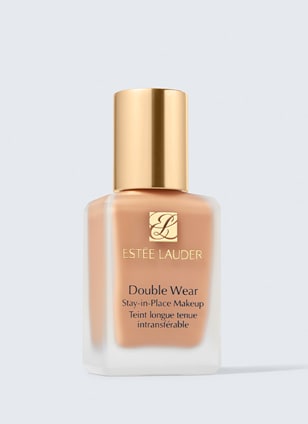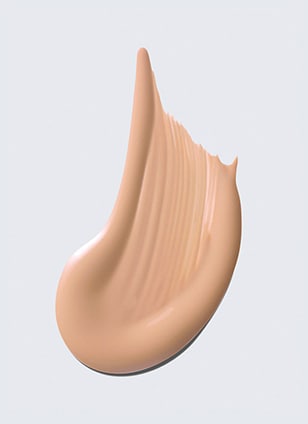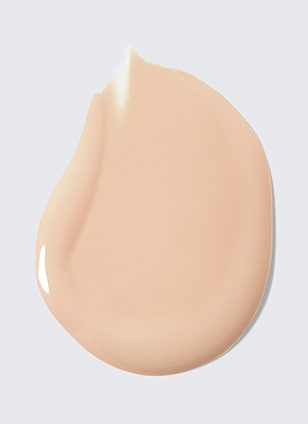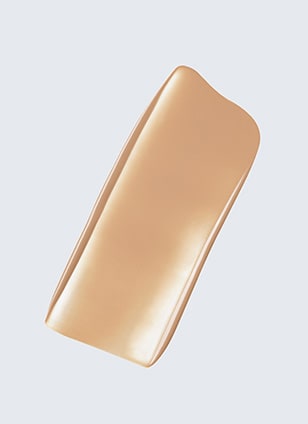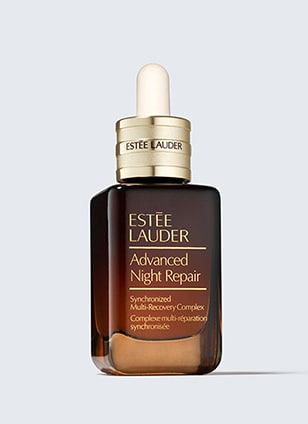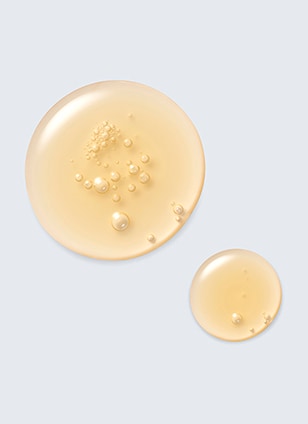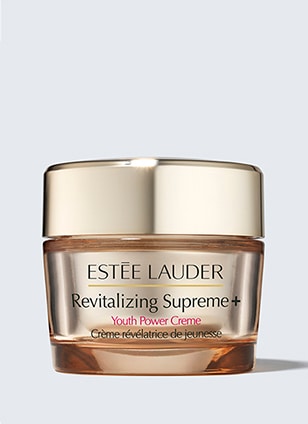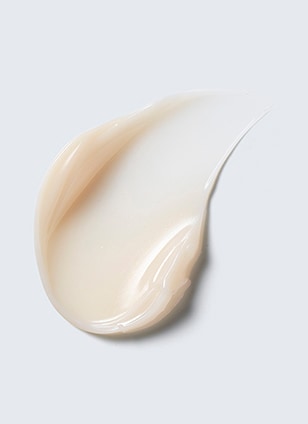
Your skin will change throughout your life, but knowing how, and why, is essential to maintaining a healthy-looking complexion.
Want to better understand your skin? You likely have a few questions. How does my skin work, exactly? What are the signs of aging I should look out for? Is my everyday foundation good for my skin?
Discover the science of how skin works and learn how aging, stress and other environmental factors can take their toll on your complexion. Brush up on the skincare basics you should follow in your everyday routine. Plus, learn more about how we use our skin expertise to develop good-for-skin makeup formulas like Double Wear Stay-in-Place Makeup and Futurist Hydra Rescue Makeup.

Skin 101: The Science of Skin
What are the different layers of my skin and what does each one do?
The two main layers of the skin are the epidermis and the dermis.
The epidermis is the top layer of the skin which forms your skin’s barrier. It helps protect your skin from the environment and from molecules entering your skin, while also locking in moisture. The epidermis is made of keratinocytes (a type of cell) that work to form a strong skin barrier.
The dermis is responsible for giving skin its youthful appearance. It produces skin-firming proteins such as collagen, fibronectin and elastin that fight the appearance of lines and wrinkles. The dermis is made of fibroblasts, which are the cells that produce these essential proteins.
What is my skin’s barrier and what does it do for me?
The skin barrier is the body’s first defense system against environmental stressors. It helps maintain skin’s essential moisture and keeps out foreign particles that can cause irritation.
How does my skin change as I age?
As we age, skin loses its firmness due to a loss of protein production—which results in skin sagging and the appearance of lines and wrinkles. It also changes as we age due to an accumulation of damage. You may notice an increase in visible hyperpigmentation and dullness.
How does my skin change as I go through hormonal changes like menopause?
A loss of estrogen causes dramatic changes in skin physiology. This accelerates the reduction of collagen production, moisture and skin’s natural healing abilities that already start to slow down as we age.
What is skin inflammation?
Lack of sleep, jetlag, environmental aggressors such as pollution or sun exposure and aging are some of the causes of skin inflammation.
Inflammation can be visible or non-visible, but either type can be damaging to skin. The damage created from inflammation can ultimately destroy proteins such as collagen and also the integrity of your skin barrier.
Skin 101: Different Lifestyles & Their Effects on Skin
What are some ways that the weather or the climate impact my skin?
The moisture and humidity in the environment you live in can have a serious impact on your skin. A dry climate, for example, can impact skin barrier and dry out your skin, affecting its ability to acclimate to the environment.
In what ways do aggressors like sun, UV, blue light and pollution impact my skin?
These aggressors can trigger the creation of more skin-damaging free radicals. These can lead to oxidative damage in the skin and ultimately accelerate signs of aging.
How does stress impact my skin?
Psychological stress can affect your sleep quality, which can lead to a desynchronization of your skin and circadian rhythm. Much like other environmental stressors, this can cause increased skin sensitivity, weaken your skin barrier and zap moisture from your skin.
Skin 101: The Basics of Skincare
A beautiful complexion begins with great skin. These are the daily habits you should follow in your everyday routine to keep your skin as healthy as possible:

1. Stick to a healthy diet - The nutrients you put into your body can greatly impact your skin.
2. Drink more water – Staying hydrated can help improve skin’s appearance.
3. Get better sleep - Help to improve your sleep quality by blocking light coming into your bedroom completely. Turn off all your devices at least 30 minutes before bed.
Our Advanced Night Repair Serum can also provide proven results that are ideal for sleep-deprived skin. It works night and day to help optimize skin’s natural rhythm of renewal and protection.
4. Use sun protection daily – Wearing high-level sunscreen like Perfectionist Pro UV Fluid SPF 45 daily can help reduce skin damage from UV exposure.
5. Stress less – Whether it’s making time for self-care or getting more sleep, lowering stress levels can have a positive impact on your skin.
6. Moisturize – Hydration is key to healthy-looking skin—and that includes using a daily moisturizer to nourish your complexion from the outside. We love Revitalizing Supreme+ Moisturizer for all skin types.
7. Remove your makeup before bed – Keep skin free of oil, dirt and other impurities that accumulate on your skin throughout the day.
Advanced Night Cleansing Balm gently melts away longwear eye, face and lip makeup without stripping skin.
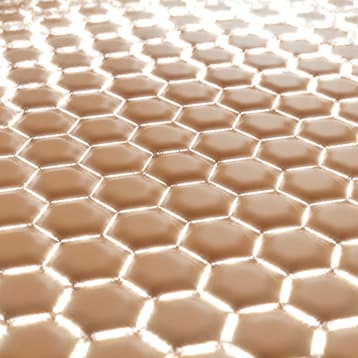
Skin 101: Our Skin Expertise
How have Estée Lauder Scientists built their expertise in skin? And how do they continue to develop it today?
Estée Lauder skin expertise dates to the founding of the brand in 1946. Our scientists are some of the best in the world, using their vast knowledge of cutting-edge skin science in developing our high-performance formulas.
We also stay up to date on the latest research in dermatology, biology and chemistry, collaborating with experts in the field of Academia and attending and presenting at industry conferences.
How do Estée Lauder scientists leverage their expertise in the science of skin when crafting new foundation/makeup formulations?
Combining our expertise in skin biology and materials science, we apply our learnings to our makeup formulations to create safe, comfortable and efficient products that are good for skin.
Does Estée Lauder partner with any external experts in the science of skin?
Yes, we actively collaborate with over 20 academic groups and with universities and dermatologists in many countries around the world.
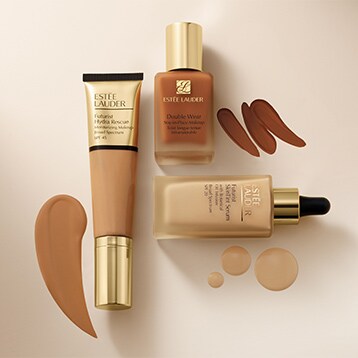
Skin 101: Good-For-Skin Makeup
Is it okay to wear foundation in your everyday routine?
Our high-performance foundations won’t clog pores or cause breakouts. We do safety testing and research to ensure that our foundations are safe for daily wear. Our best-selling Double Wear Stay-in-Place Makeup is dermatologist-tested, non-acnegenic and free from synthetic fragrance, drying alcohols and parabens.
Are Estée Lauder foundations good for your skin?
Foundations like Futurist Hydra Rescue Makeup SPF 45 are made with skin-loving ingredients and powered by high-performance Estée Lauder skincare. This moisturizing formula is infused with our IonCharged water complex, Probiotic Technology and Chia-Seed Extract to soothe, protect and hydrate skin.
Futurist SkinTint Serum SPF 20 is another skincare-infused formula. It provides sheer coverage and is made with 85 percent skincare ingredients, including a Botanical Oil Infusion that helps nourish and strengthen skin.
Want more skin tips? Chat Live with an Estée Expert or take our Skincare Quiz to discover the right routine for you.

